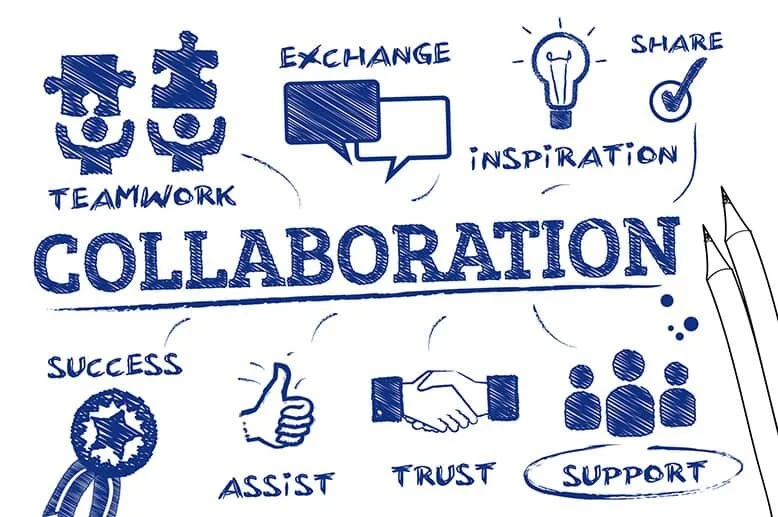The Importance of Healthy Collaboration
Another word for collaboration is relationship. We all have them with varying degrees of success. Whether it’s an intimate relationship, business relationship, family or friendships. In a perfect world friendship laced with mutual respect is a common thread through all of these connections.
As most of us live in an imperfect world it can be daunting to look at the relationships you keep now and think of how to enhance their quality and calibre – particularly if some don’t feel so good. Fortunately, like most things, collaboration and relationship skills can improve with practise.
How to Consciously Improve Relationships
In some cases there is truth to the concept of ‘being the bigger person’ when it comes to improving a relationship. If you feel you’re in a one-sided or volatile relationship, there has probably been tension or conflict, and the other person could well be feeling the same way.
A successful collaboration must be mutually beneficial to both parties, requiring consideration and thoughtfulness of each other. At times this can prove most challenging in the workplace where stress levels are high.
Here are five guidelines to be aware of:
Find one thing you like about the person you’re with, and be genuine about it! If you’re around people you don’t like or respect, reconsider what you’re doing there.
Listen to what the other person has to say, really listen – imagine what it must be like to be that person in that circumstance – whatever it is they are describing.
Make a point of meeting face to face and being present. Human beings crave personal connection, being seen, heard and valued for who we are.
Why do we need to Collaborate?
Collaboration is a critical need of the human brain to have safe and secure connections with others. This includes support networks in friends, family, colleagues and even pets! Natural collaborators have the ability to balance the perception of others with their own perspectives…put themselves in other people’s shoes so to speak. They have the ability to work with the people around them and build meaningful relationships.
This is not to say collaborative people get along with everyone…they don’t. But they’re often quick to recognise when a relationship is not going to work, and either improve on, or remove themselves from a bad collaboration.
4. Body language and tone of voice is important – unconsciously you read people’s body posture and react to someone’s tone of voice. Remember when your mother had enough and you knew she wasn’t joking? Tone of voice matters!
5. If you have an issue with someone, speak to that person – not everyone else around them. Having conversations with others about it simply magnifies the issue and can make it toxic. You wouldn’t want them speaking to others about you in a negative way would you?
Note: Those who mirror someone’s tone of voice, posture and mannerisms are seen as friendly and attentive.
The best part about improving collaborative relationships is that you can start right now.
In the workplace, meaningful conversations can make a significant contribution to a positive and supportive culture. Keep practising. Reach out and find a mentor if need be. It does get easier; before you know it you’ll be a healthy collaborator, forming the right relationships with the right people.




